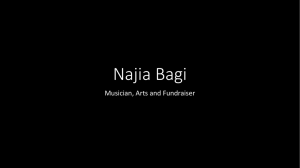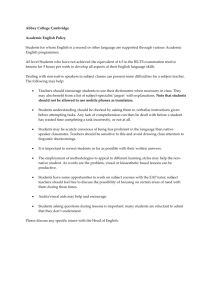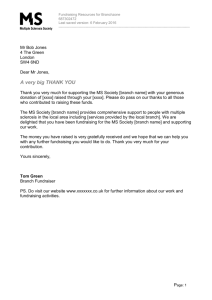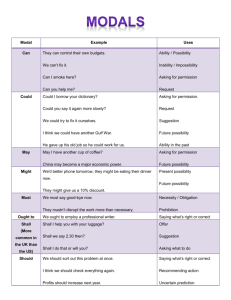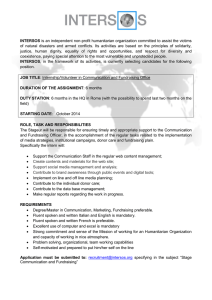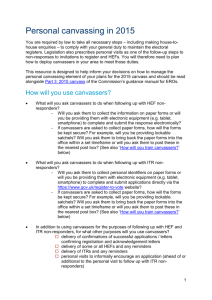Responding to no
advertisement
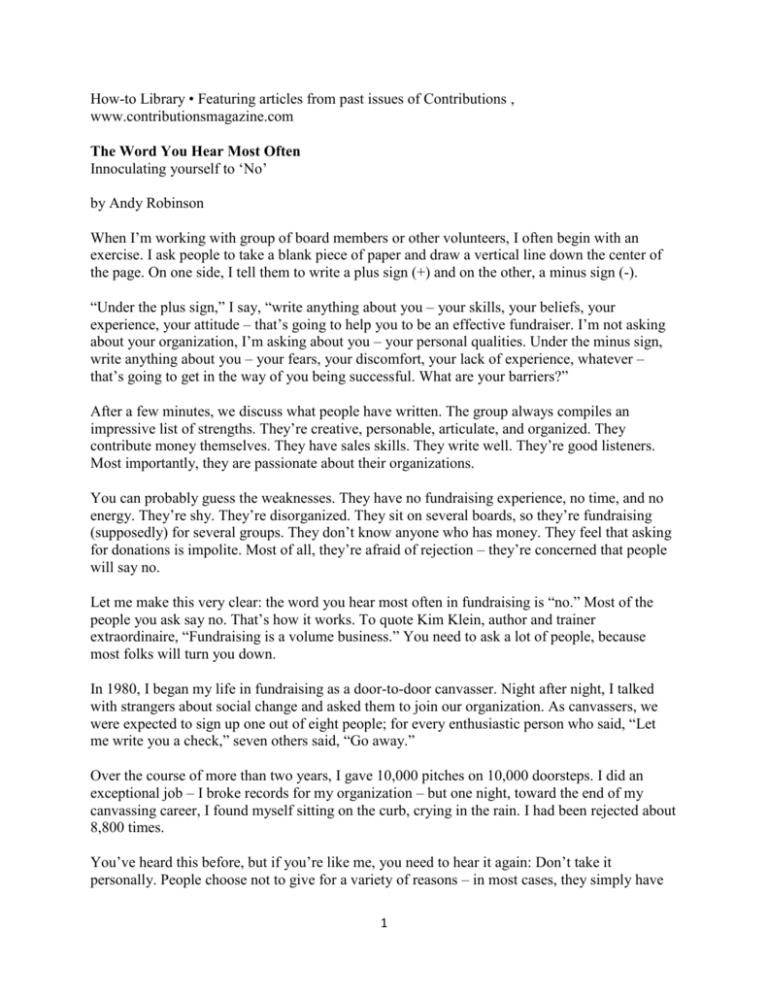
How-to Library • Featuring articles from past issues of Contributions , www.contributionsmagazine.com The Word You Hear Most Often Innoculating yourself to ‘No’ by Andy Robinson When I’m working with group of board members or other volunteers, I often begin with an exercise. I ask people to take a blank piece of paper and draw a vertical line down the center of the page. On one side, I tell them to write a plus sign (+) and on the other, a minus sign (-). “Under the plus sign,” I say, “write anything about you – your skills, your beliefs, your experience, your attitude – that’s going to help you to be an effective fundraiser. I’m not asking about your organization, I’m asking about you – your personal qualities. Under the minus sign, write anything about you – your fears, your discomfort, your lack of experience, whatever – that’s going to get in the way of you being successful. What are your barriers?” After a few minutes, we discuss what people have written. The group always compiles an impressive list of strengths. They’re creative, personable, articulate, and organized. They contribute money themselves. They have sales skills. They write well. They’re good listeners. Most importantly, they are passionate about their organizations. You can probably guess the weaknesses. They have no fundraising experience, no time, and no energy. They’re shy. They’re disorganized. They sit on several boards, so they’re fundraising (supposedly) for several groups. They don’t know anyone who has money. They feel that asking for donations is impolite. Most of all, they’re afraid of rejection – they’re concerned that people will say no. Let me make this very clear: the word you hear most often in fundraising is “no.” Most of the people you ask say no. That’s how it works. To quote Kim Klein, author and trainer extraordinaire, “Fundraising is a volume business.” You need to ask a lot of people, because most folks will turn you down. In 1980, I began my life in fundraising as a door-to-door canvasser. Night after night, I talked with strangers about social change and asked them to join our organization. As canvassers, we were expected to sign up one out of eight people; for every enthusiastic person who said, “Let me write you a check,” seven others said, “Go away.” Over the course of more than two years, I gave 10,000 pitches on 10,000 doorsteps. I did an exceptional job – I broke records for my organization – but one night, toward the end of my canvassing career, I found myself sitting on the curb, crying in the rain. I had been rejected about 8,800 times. You’ve heard this before, but if you’re like me, you need to hear it again: Don’t take it personally. People choose not to give for a variety of reasons – in most cases, they simply have 1 other priorities – but it’s rarely about you, the solicitor: what you said or didn’t say, your clothing, your cologne, your inability to interpret body language, or your comedic timing. Looking back at the previous exercise, you might want to add the words “thick skin” in the plus column, because I guarantee you one thing: somebody will turn you down. That’s the bad news. Here’s the good news: to paraphrase Klein, you and your organizational colleagues already know all the people you need to know to raise all the money you need to raise. You have the relationships – right now – to meet your financial goals. “But I can’t ask my friends!” “How many of you,” I ask the group, “would be uncomfortable asking friends and family to donate to your favorite group?” Most of the people in the room – dozens and dozens of them – raise their hands. “Why?” “I don’t want to take advantage of them,” says one. “I don’t want to be seen as mercenary,” responds another. “Friendship and money don’t mix.” “They’re going to turn around and ask me to support their groups,” says a third, and everyone laughs appreciatively. “I can’t afford to say yes to everyone.” “How many of you have done it anyway?” I ask. Nearly every hand goes up. “So has anyone ever lost or damaged a friendship because of a charitable request?” The room goes quiet. We all look at each other, sitting on our hands. I’ve asked this question of thousands of people. Perhaps one out of 50 will talk about a friendship gone sour due to miscommunication or inappropriate expectations. The other 49 of us sit silently, wondering why our fears are so disconnected from reality. Most of us have been raised to solve our own problems and not trouble anyone else. Independence, we’ve been told, is the great American virtue. Asking for help somehow implies we’re not clever enough or strong enough – it’s a sign of weakness. We fear it will obligate us to do something in return that we don’t really want to do. Let’s be honest – when we’re raising money, we are asking for help. If we individually had enough money or energy or power to solve community problems alone, we’d probably just do it ourselves. 2 Unfortunately, big challenges such as poverty, disease, and injustice require big solutions. None of use can solve them individually. We need each other. Let me suggest a way of asking that might ease your mind. “Maxine,” you say, “I’m involved with a great cause. We’re doing terrific work to improve our community and we need your help. If you could support us with a $500 donation, it would mean a great deal to me. If you choose not to participate, that’s OK – we’ll still be friends no matter what. But I sure hope you can help.” In other words, when you ask, you give the person explicit permission to say no. There’s no pressure involved. Given your passion and the power of your cause, some will say yes. I promise you that they will be grateful for the opportunity to participate. 3
